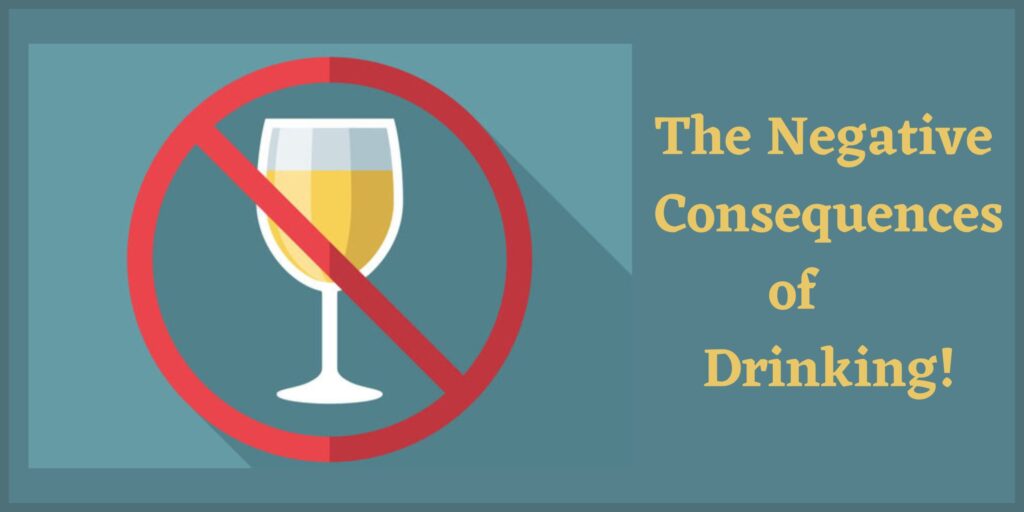Harmful effects of drinking alcohol
The harmful effects of drinking alcohol are clarified meticulously in this article. Excessive drinking can manifest itself in several ways, including binge drinking, heavy drinking, and any drinking behaviour demonstrated by pregnant women or those under 21. Females who consume four or more drinks on a single occasion are binge drinkers, whereas males who consume five or more drinks on a single occasion are considered binge drinkers. Binge drinking is the most widespread form of excessive alcohol consumption. Women who consume eight or more alcoholic beverages per week and males who consume fifteen or more alcoholic beverages per week are considered heavy drinkers. Consuming alcohol regularly increases your chance of acquiring heart-related health problems. You’ve likely experienced alcohol’s repercussions if you drink, from the warm buzz that sets in rapidly to the not-so-pleasant wine headache and the hangover the following day. Since these effects are temporary, you may not be too concerned about them, particularly if you do not consume alcohol frequently. Many individuals believe that drinking an occasional beer or glass of wine at meals or on special occasions poses no risk. However, drinking any amount of alcohol might have negative health implications.
Problems related to drinking
Binge drinkers and heavy drinkers might probably experience alcohol’s bad health consequences more immediately, but moderate drinkers are not immune to alcohol’s harmful effects. Drinking in moderation is defined as consuming no more than 1 alcoholic beverage per day for women and no more than 2 alcoholic beverages per day for males. Traditionally, advice about alcohol use has claimed that normal alcohol consumption carries a low risk of negative health effects and may even provide some health advantages. However, more recent research suggests that there is no such element as a “secure” quantity of alcohol to drink because even moderate drinking may hurt brain function. The harm that alcohol causes to lung cells and the immune system is so well documented that a condition has been coined for it: alcoholic lung. Problems in society, including those in families, the workplace, and unemployment, are involved in the harmful effects of drinking alcohol. Regular alcohol use over an extended period can have detrimental effects on a person’s physical and psychological wellbeing. If you consume alcohol regularly and tend to consume more than one or two drinks every occasion, these effects may be more severe and noticeable.
Effects of drinking
You might very well experience numerous transitory side effects while consuming alcohol (or briefly after): emotions of soothing or drowsiness, a feeling of ecstasy or dizziness, mood swings, reduced inhibitions, reckless behaviour patterns, slow down or difficulty speaking, nausea and puking, diarrhoea, headaches, modifications in listening, vision, and interpretation, impaired coordination, trouble concentrating or making choices, and disorientation or memory shortfalls, A few of these effects, including a relaxing mood or lowered inhibitions, might appear quickly after only one drink, particularly if you consume a great deal of alcohol. Some people might have various side effects, including unconsciousness or loss of coordination, after consuming a few alcoholic beverages. Long-term effects of alcohol consumption include hypertension, cardiovascular disease, stroke, liver damage, and digestive issues. Complications to one’s psychological health, including anxiety and depression, are the harmful effects of drinking alcohol. The signs of dehydration, which could involve nausea, headache, and dizziness, might not emerge for a few hours. When they do, they could vary according to the type of beverage taken, the amount ingested, and whether or not water was also drunk.
Outcomes of drinking
Even while these effects mentioned above won’t last very long, that doesn’t make them any less significant. Your judgement and behaviour might be affected, leading to far-reaching consequences, including accidents, injuries, and actions you later regret. Impulsivity, a lack of coordination, and mood swings might affect you. Learning disabilities and memory issues, such as dementia and low academic performance, are the harmful effects of drinking alcohol. Alcohol use can also cause other long-term problems that affect a person’s mood or health. Some of the long-term effects of drinking alcohol often are increased tension and conflict in romantic and family relationships, constant mood changes like anxiety, stress and irritability, trouble concentrating on tasks, insomnia and other sleep problems, memory problems and an inability to focus, a weakened immune system that makes you more likely to get sick, a poor appetite and weight gain, and changes in libido and sexual activity. Inflammation of the pancreas may arise from excessive alcohol consumption over time, culminating in pancreatitis. Pancreatitis can trigger the release of pancreatic digesting enzymes and produce stomach discomfort.



